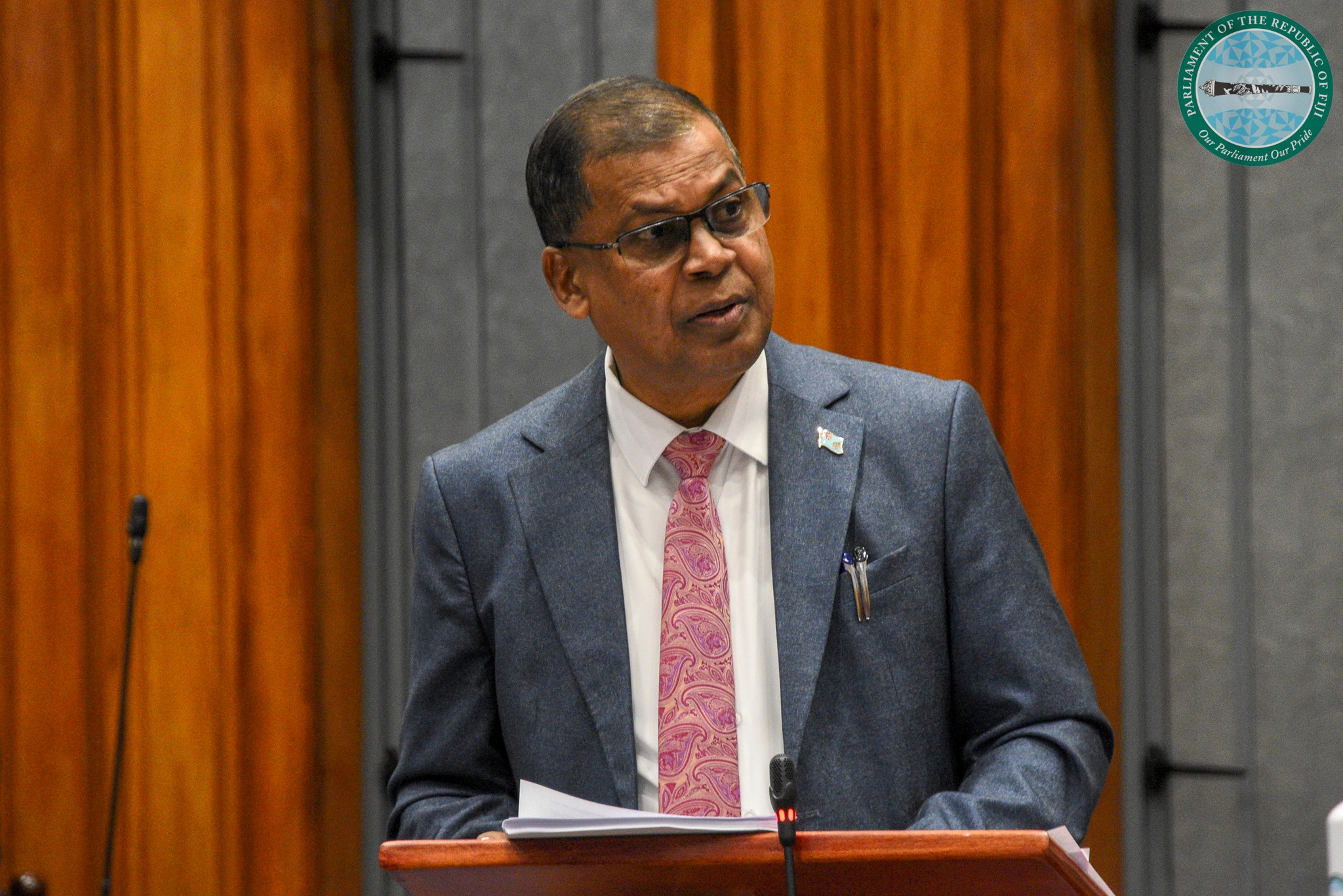
The government is focussed on cutting red tape and devolving some fiscal responsibilities back to ministries says, Deputy Prime Minister and Minister for Finance, Biman Prasad.
Speaking after delivering the government’s 2025-26 budget, Prasad also noted that while the government was taking on more debt in an order to stimulate economic activity, it was satisfied with the loans being extended.
Most of the government’s debt is from local sources, but 35% comes from external funding.
“We're getting some very, very concessional loans now, and some have a 10-year grace period before the loan [repayment] starts. We've got really good financiers, and there are a number of multilateral players now in this system – the ADB, World Bank.”
In past budget years, the national coffers have also benefited from direct budget support. Between 2019-20 and 2024-25, Australia committed around AUD351 million in general and targeted budget support to bolster Fiji's key reform and social protection initiatives.
“We keep talking about these things,” Prasad said when asked whether there were active discussions with partners about further direct budget support.
“The level of engagement that we have created as a government, with the international community, with our donors, with our development partners, it's been extraordinary. It's phenomenal. And I think Fiji's position in the Pacific, Fiji's strategy to undertake some of the reforms—in two and a half years, we've undertaken some major economic policy reforms— which not only supports our own strategies to grow, but also it sends a very clear signal to the international community, our development partners, that we mean business, that we have a plan, we have a path, we have a very clear vision of what we want to do in the next 5 years, 10 years, 20 years.”
The budget delivers a 3% salary increase to civil servants. Prasad says they continue to look at efficiencies in this sector.
“There will always be a mixed bag in the civil service. We have a large civil service. When you have an organisation of 42,000 people, you can do a simple, normal curve. You'll have 10% who will be the star performers, you have 10% who will be very bad performers, and majority would be average, above average performers.
“We're providing additional incentives for our civil servants. The Learning Institute is being set up. There will be a further review [with the] support of the Australian government.”
Improved efficiencies extend to the utilisation rate of funds allocated to individual ministries.
“We've improved significantly,” Prasad says. “In the 2023-24 budget, we found the utilisation rate was a bit low. I think in this financial year, it's improved significantly, and we are also making some reforms within the financial management system.”
Those improvements include allowing some expenditure to be approved at ministerial and permanent secretary level, rather than everything being sent to the Ministry of Finance for approval.
“We will be piloting that, making sure that there is no bureaucratic headache, there is no time wasted in simple things like approvals, and that ministries will be able to do this more effectively and efficiently, and utilise the budget that has been allocated.”
The budget also introduces further incentives for the renewable energy sector.
The security of fuel supplies in an environment where, as Prasad said in his budget address, the “foundations of global economic order stand fundamentally shaken”, and Fiji’s long-standing commitment to transition from fossil fuel-generated energy, has seen the introduction of two new measures. The tax holiday in relation to the Renewable Energy and Power Cogeneration projects will be increased from 5 years to 10 years, and VAT refunds for solar panel installations, excluding solar heaters and standalone lighting, will be available to individuals.
“I think Fiji is in a very strong position; 50% of our energy already comes out of renewable sources…We are now going big. As you heard in the budget, we've announced incentives for solar renewable sources [for] residential. So, if you put solar panels on your house, you can reduce your bills. You may sell the surplus to the main grid. Plus, there are number of tax incentives that we are providing. EFL is also going big on investment into the renewable energy sector, particularly solar, and we are hoping that as a result of those good policies and incentives, in the next 10 to 15 years, our reliance on fossil fuel would be much lower.”
For media enquiries, partnership opportunities, advertising in the publication or further
information about the Fiji Trade and Investment Review, please contact:
Editorial Team – Fiji Trade and Investment Review
Email: info@fijitradereview.com